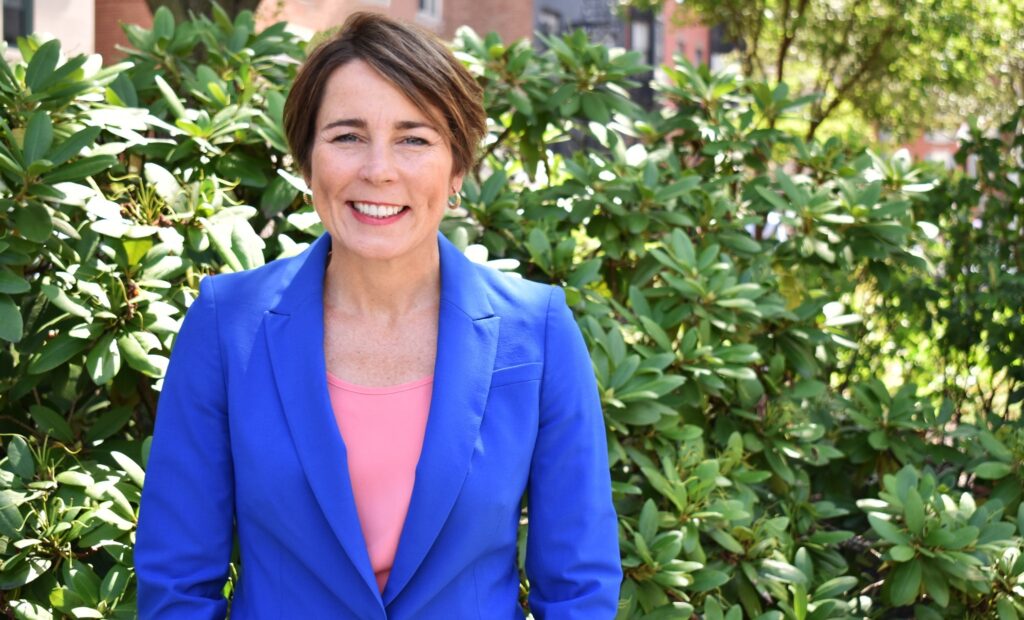Democrat Gov. Maura Healy promotes commonsense education policies despite teachers’ union pushback
Massachusetts Democratic Gov. Maura Healy is promoting commonsense education reforms, despite pressure from the state’s teachers’ union to do otherwise.
In a recent interview, Healy…

Massachusetts Democratic Gov. Maura Healy is promoting commonsense education reforms, despite pressure from the state’s teachers’ union to do otherwise.
In a recent interview, Healy highlighted two areas – literacy instruction and high school graduation requirements – where the Massachusetts Teachers Association (MTA) is trying to undermine what Healy and many others see as good education policy.
“It’s pretty clear and simple what needs to happen,” Healy told local media. “There’s actually science-based curricula out there – the science of reading. There is a way to teach kids how to read. Many of our districts aren’t using that curricula. They are not teaching kids how to read in a way that’s proven for their success.”
Earlier this year, Healy introduced her Literacy Launch program which would spend millions to improve early literacy instruction.
The program would have three major goals: to retrain current teachers, to properly train up-and-coming teachers, and to support districts in making the switch.
But the MTA and Massachusetts Association of School Superintendents are currently opposing a bill that would require districts to use such science-based reading instruction, the Boston Herald reported.
The science of reading has become a bipartisan issue for states as nationwide literacy rates are dismally low.
Less than half (43%) of Massachusetts’ fourth graders were proficient in reading, compared to 32% nationwide.
The average dipped even lower (39%) for Bay State eighth graders.
Healy is also supporting an effort to maintain the state’s high school graduation standards – which the MTA opposes.
Currently, high school students must pass the MCAS (Massachusetts Comprehensive Assessment System) to graduate. The exam covers English Language Arts, Mathematics and a Science or Technology/Engineering test of their choosing.
According to the Massachusetts Department of Elementary and Secondary Education, students typically take MCAS in 10th grade and can retake it in 11th and 12th grade if necessary.
Those who don’t attain the requisite MCAS score can also fulfill their graduation requirements through an individualized Educational Proficiency Plan.
One state education official estimated roughly 20% of students utilize EPPs to graduate.
But meeting these requirements isn’t a problem for the vast majority of students.
Data from 2023 indicates only 1% of high school students fail to graduate because they’re unable to pass the MCAS.
Even most students who drop out of high school – roughly two-thirds – had already passed the MCAS when they left.
Yet the teachers’ union is in favor of getting rid of the test.
“The MCAS is not a ‘standard’ – it is, in fact, just a test of some of the state standards,” MTA President Max Page said in a statement. “Proponents of keeping the MCAS graduation requirement should stop mischaracterizing the relationship between the standardized exam and our state’s model academic standards.”
But despite union efforts to effectively lower graduation requirements, Healy insisted on their importance.
“It’s having a way to assess how our young people are doing, that’s what we need to focus on,” the governor, who was once endorsed by MTA, said. “We [MTA and I] may not see eye to eye on everything, but that’s just the way it goes sometimes.”
Louisiana’s governor also shot down recent attempts to lower graduation standards. Oregon moved the other direction, no longer requiring students to prove they can read or do math to receive a diploma.



